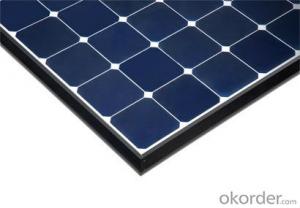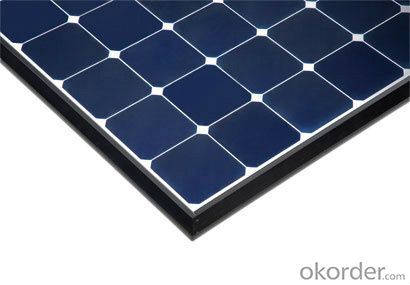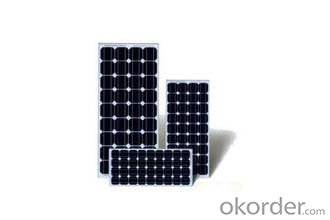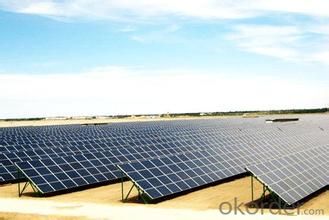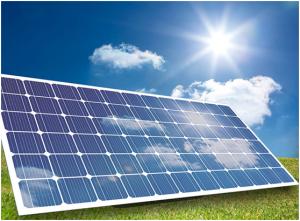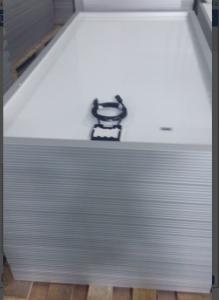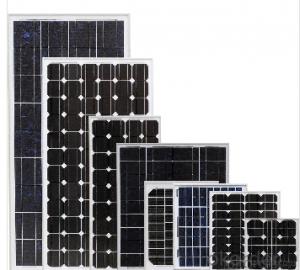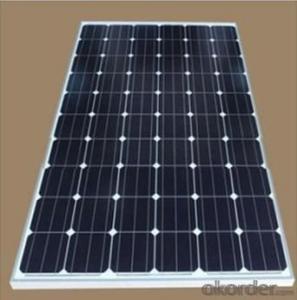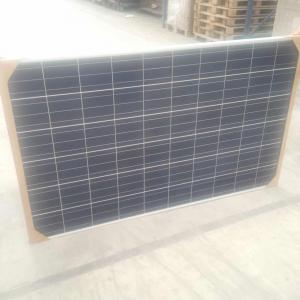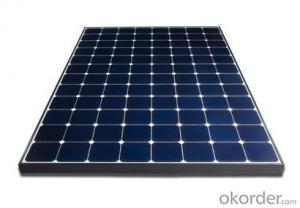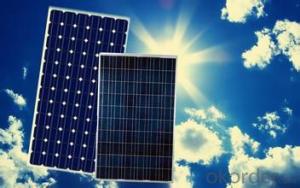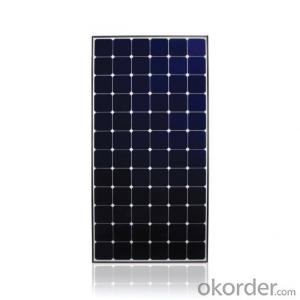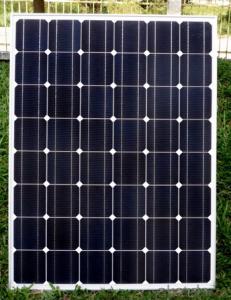250 Watt CNBM Monocrystalline Silicon Solar Panels for Home Use
- Loading Port:
- Tianjin
- Payment Terms:
- TT OR LC
- Min Order Qty:
- 50 watt
- Supply Capability:
- 500 watt/month
OKorder Service Pledge
OKorder Financial Service
You Might Also Like
Specification
30W CNBM Monocrystalline Silicon Panel for Home Using
Production description
The large magnitude of solar energy available makes it a highly appealing source of electricity. The United Nations Development Programme in its 2000 World Energy Assessment found that the annual potential of solar energy was 1,575–49,387 exajoules (EJ). This is several times larger than the total world energy consumption, which was 559.8 EJ in 2012.
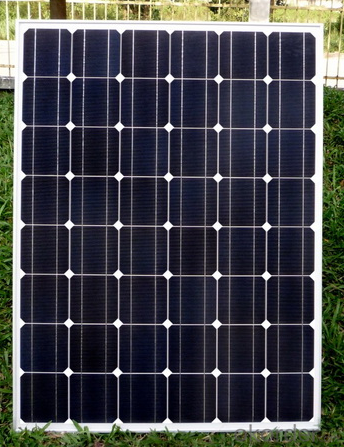
Feature
1.High conversion efficiencies resulting in superior power output performance.
2.Outstanding power output even in low light or high temperature conditions
3.Optimized design for ease of soldering and lamination
Physical characteristic
1. Rigorous quality control meets the highest international standards.
2. High-transmissivity low-iron tempered glass, strong aluminium frame.
3. Using UV-resistant silicon.
4. IS09001/14001/CE/TUV/UL
packaging
26pcs in one carton 6pallets in 20foot container 14pallets in 40 foot container.
- Q: Solar panels which is the one produces the power...I wanna the complete description about it...
- If your meter is actually running backwards, then you already have a credit. You must have a huge system, or not use much power at all. Most systems I have seen will at best just cut some percentage of the power used, primarily because the system only produces peak a few hours a day and power is being used 24/7.
- Q: What is the payback period for solar panels?
- The payback period for solar panels varies depending on factors such as the cost of installation, energy savings, and applicable incentives. On average, it ranges from 5 to 15 years, but advancements in technology and decreasing prices are making the payback period shorter.
- Q: Can solar panels be installed on a prison or correctional facility?
- Yes, solar panels can be installed on a prison or correctional facility. In fact, many correctional facilities have embraced solar energy as a way to reduce their carbon footprint and save on energy costs. Solar panels can be installed on rooftops, parking lots, or open areas within the facility, providing renewable and clean energy to power various operations within the prison. This not only helps in reducing greenhouse gas emissions but also allows prisons to become more self-sufficient and sustainable.
- Q: How do solar panels affect the value of a home?
- Solar panels can have a positive impact on the value of a home. They are considered a valuable asset as they reduce energy costs and provide potential financial savings for homeowners. Solar panels also contribute to a greener and more sustainable lifestyle, which is increasingly valued by homebuyers. Additionally, homes with solar panels are often seen as more attractive and can stand out in a competitive real estate market, potentially increasing the overall value of the property.
- Q: Can solar panels be installed in urban areas?
- Yes, solar panels can be installed in urban areas. In fact, they are increasingly being installed on rooftops, facades, and even integrated into buildings in cities around the world. Urban areas offer ample opportunities for solar panel installation, promoting clean energy generation and reducing dependence on fossil fuels.
- Q: How much space is required for installing solar panels?
- The amount of space required for installing solar panels can vary depending on factors such as the size and type of panels, as well as the energy needs of the property. However, on average, a typical residential solar panel system requires about 100-400 square feet of roof space per kilowatt of installed capacity.
- Q: I own a townhome in the Phoenix area (my power company's SRP, if that makes a difference). Phoenix is a great place for solar. I could probably save money, in the long term, if I got some solar panels.But I am currently extremely broke, so I can't buy solar panels unless I will more or less immediately be paying no more than I am now per month, with little or nothing down. And most of the solar leasing places won't work with me, because (as is common for townhomes) I don't technically own my roof. I have permission to put things on it, but the property management people (or whoever actually owns my roof) won't sign the lease or whatever.Anyone know of either a way to buy solar panels without paying significantly more per month than I already do for electricity, or a solar leasing company that can work with the restrictions I have?
- The big problem is that you cannot force the homeowners association to do anything. I live in a condo with a HOA. We have outside parking spaces. The goonies won't let people run electric lines to parking spaces to charge electric cars. Several years ago, residents had to sue the HOA in court because they would not allow satellite dishes on buildings. The HOA lost. You don't have money to pay an attorney so you are out of luck.
- Q: How much space is required to install solar panels?
- The amount of space required to install solar panels varies depending on several factors, including the size and capacity of the panels, the energy needs of the property, and the available sunlight. On average, a typical residential solar panel system requires about 100-400 square feet of roof space per kilowatt of installed capacity. However, ground-mounted systems can also be installed if there is enough space available on the property. It is recommended to consult with a solar installer to assess the specific space requirements for a particular installation.
- Q: Are there any noise or sound-related issues with solar panels?
- No, solar panels do not produce any noise or sound-related issues. They work silently and efficiently, converting sunlight into electricity without creating any disturbance or noise pollution.
Send your message to us
250 Watt CNBM Monocrystalline Silicon Solar Panels for Home Use
- Loading Port:
- Tianjin
- Payment Terms:
- TT OR LC
- Min Order Qty:
- 50 watt
- Supply Capability:
- 500 watt/month
OKorder Service Pledge
OKorder Financial Service
Similar products
Hot products
Hot Searches
